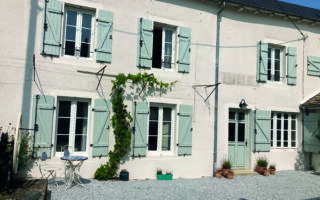Higher Education & Post-Bac Vocational Courses in France
Essential Reading


If you’ve completed your Baccalauréat in France but don’t want to apply to a French university, there are other options available. Let’s take a look at some of the additional higher education and vocational courses in France.
Brevet de Technicien Supérieur (BTS)
BTS stands for Brevet de Technicien Supérieur. It is a two-year professional course, the equivalent of a HND (Higher National Diploma) in the UK, and the French title means just that.
The difference between a BTS and, for example, a similar two-year post-bac course in an IUT (Institut Universitaire Technologique) is that although it is a university qualification, BTS courses are run by schools. This means:
1. Tuition is free
2. School rules apply (that means you can’t skip classes, for example).
3. There is usually accommodation provided on site, but again, school rules will apply.
4. Groups are small, the teachers are secondary school teachers who have opted to teach on these courses. This means plenty of individual attention
There are many different types of BTS. Some are full-time courses, with work experience during the holiday period. Others (BTS en alternance) alternate between work experience and study year-round. In this case, the student has an employer to whom he is apprenticed and if he does well, has a good chance of being taken on board at the end of the two-year period of study, sometimes even if he does not actually obtain the diploma.
You will find lists of both types on the académie (school district) websites.
BTS courses can also often be found in non-university towns. Usually, each type of BTS is only to be found in one school in each académie. Others may also be run by private schools, but will be listed on the same académie websites.
Very often, there is a distinct connection between the type of BTS course offered and its location. Local industry is often closely associated with the teaching and practical experience.
Applying for a BTS in France
To get on one of these courses, selection is by application, in the month of March. Unlike for university entrance, school reports will be consulted. There are no interviews as such, but you may be called to an information meeting. Be sure to take an active part in these meetings, as it’s more than meets the eye – this is where final selection discreetly takes place. And if you have two meetings on the same day (candidates usually apply to several places, so this is frequent) be sure to phone and apologize for your absence and explain why. That could make the difference between obtaining a place or not.
Here, to give you an idea, is one example of a BTS:
BTS Animation et Gestion Touristiques Locales
I spoke to Pascal Ferchaud, economics teacher on the BTS staff at the Lycée Cordouan, Royan, (17) where they run a tourism BTS. This course is geared to “receptive” tourism, that is, training people to be in contact with tourists in France, managing holiday resorts, organising events, running tourist offices, working as local guides etc. (As opposed to those hoping to work, say, in travel agencies, sending tourists out of the country.)
What type of student are you looking for?
They need a good level in French, history-geography and modern languages. We don’t have time to revise these subjects with them, they need to put them to professional use right away: correspondence, brochure-writing, oral presentations in French and in foreign languages.
We also need candidates with an interest in the history and geography of France, and with an enthusiasm for local culture.
Why is this BTS for tourism situated in Royan?
Charente-Maritime is the second department in France after the Var for “nuitées”, nights paid for by tourists in hotels and campsites and rented accommodation. This is the way tourist numbers are calculated. Within this department, Royan has the highest figures. So our BTS is well-placed for students to study tourism at work, to put into practice what they learn and to find work experience nearby.
How much will it cost them?
Tuition is free. The weekly boarding facilities cost 1100 euros for the year, and that includes all meals.
How big are the classes?
We take thirty. We have a majority of female candidates, but there is plenty of opportunity for male candidates to make a good career out of tourism.
How would you react to an application from a student who had no formal qualification in English at the bac, but whose mother tongue was English?
They would need to include a well-documented letter with their application, explaining why the candidate had not studied English at school. Otherwise, if the selection panel sees that English is not one of the two foreign languages studied, they application will not even be considered. Of course, we welcome students with good English, as long as their French is of a high standard too. And they need a second foreign language too, of course.
How many applications do you get?
Last year we had two hundred, for thirty places, so competition is very tough.
To find out more, here is the lycée website: cordouan.free.fr/som.htm
Jacqueline Karp, Education Topic Host
Studying in France?
From nursery through secondary school to higher education, university, and foreign exchange study programs—FrenchEntrée is here to answer all your back-to-school questions. Visit our Education zone for more on studying in France and the French school system, or find out more about raising children in France in our Family zone.
Share to: Facebook Twitter LinkedIn Email



